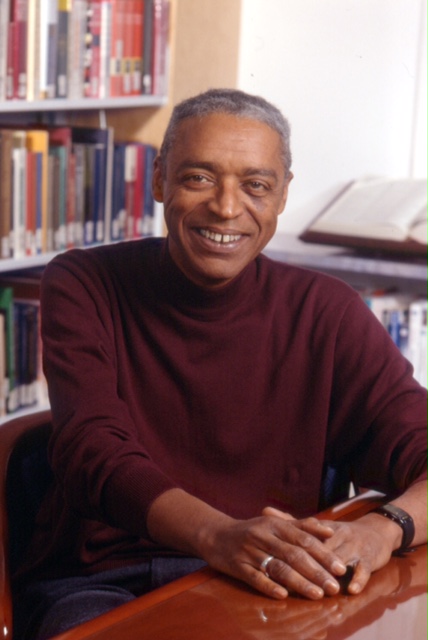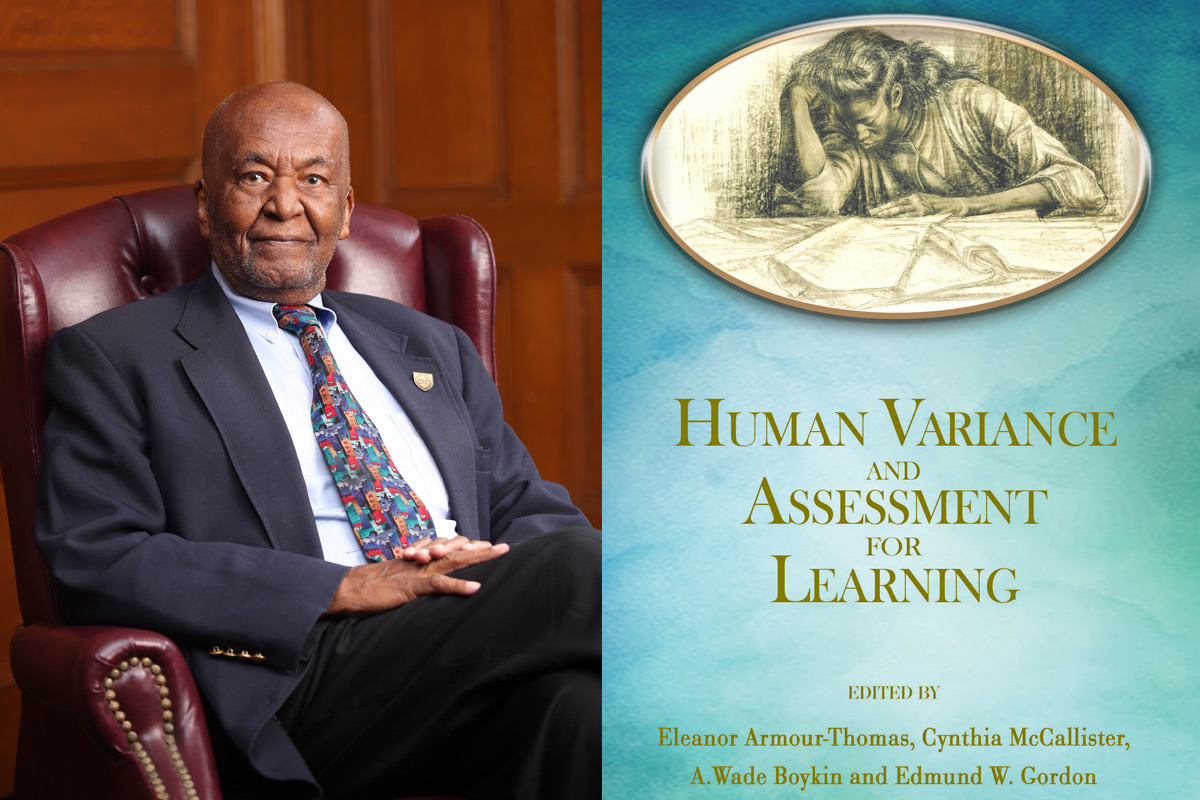Edmund W. Gordon, Teachers College’s legendary 98-year-old education psychologist, will chair a major conference focused on shifting the function of assessment from measurement and ranking to improving teaching and learning.
Titled “Human Variance and Assessment for Learning: Implications for Diverse Learners of STEM,” the conference will be held at Teachers College on Friday, November 1st from 9 a.m. to 5 p.m. in 179 Grace Dodge Hall. The event is co-sponsored by the National Science Foundation, the National Urban League, Teachers College’s Institute for Urban and Minority Education (IUME), which Gordon founded in 1973, and the CEJJES Institute, a cultural, educational, and research foundation founded by Gordon and his late wife, the physician Susan Gordon. (Click here to pre-register to attend.)
The conference will build on the work of The Gordon Commission on the Future of Assessment in Education, empaneled by the Educational Testing Service and chaired by Gordon, which in 2013 called for a national effort to transform assessment into a broad-based strategy for enabling America’s diverse student population to learn to its fullest potential.
“Our premise is that testing should pay as much attention to the cultivation of ability as the measurement of ability,” says Gordon. “First and foremost, we see that as a civil rights issue – that if measurement scientists know how to cultivate ability, we have a moral obligation to do so. But this is also an obvious point of convergence for schools, employers and even the testing industry, because it will change the primary foundations of assessment from analysis of the past to a direct force for influencing the future.”
Our premise is that testing should pay as much attention to the cultivation of ability as the measurement of ability.
—Edmund Gordon
The key to realizing that vision, Gordon says, is to construct assessments that tap the knowledge base that students from different backgrounds bring to the classroom.
“Long ago, we talked about Socratic dialogue, or encouraging learners to bring their information to problem solving,” he says. “It’s an old idea, but I think it’s catching on. And Teachers College, which was the birthplace of education measurement, is the right place to lead the charge.”
Gordon, who served as founding Research Director for the federal Head Start Program and helped write the first Elementary and Secondary Education Act in 1965, is best known for championing a vision of “supplementary education” – a strategy to level the playing field for underserved children of color through a range of supports and services.
Long ago, we talked about Socratic dialogue, or encouraging learners to bring their information to problem solving. It’s an old idea, but I think it’s catching on. And Teachers College, the birthplace of education measurement, is the right place to lead the charge.”
—Edmund Gordon
“Human Variance and Assessment for Learning” will feature some of the leading authorities in the assessment field. In addition to Gordon, they include:
Eleanor Armour-Thomas, Professor of Educational Psychology at Queens College (QC) and the Graduate School and University Center of the City University of New York. Armour-Thomas’ books include Assessment and Culture: Psychological Tests with Minority Populations and Assessing Intelligence: Applying a Bio-Cultural Model.
Lloyd Bond, Consulting Scholar with the Carnegie Foundation for the Advancement of Teaching in Stanford California. Bond has served on two joint committees of the American Educational Research Association, American Psychological Association and National Council on Measurement in Education to revise the Standards for Educational and Psychological Testing, and is currently a member of the Design and Analysis Committee of the National Assessment of Educational Progress.

STANDARD BEARER Lloyd Bond, Consulting Scholar with the Carnegie Foundation for the Advancement of Teaching in Stanford California and an authority on measurement in education, will deliver the conference's keynote address. (Photo: Rudy Chery [CC BY-SA 4.0], via Wikimedia Commons)
Wade Boykin, Professor and Director of the Graduate Program in the Department of Psychology at Howard University and Executive Director of Howard’s Center for Research on the Education of Students Placed At Risk.
Cynthia McCallister, Associate Professor of Literacy Education at New York University and the developer of Learning Cultures®, a social-constructivist approach to education that has been successfully implemented in more than a dozen New York City public schools.
Hal Smith, Senior Vice President, Education and Youth Development for the National Urban League.
Several Teachers College faculty members and administrators will also speak at the conference, including Erica Walker, TC’s Clifford Brewster Upton Professor, Director of IUME, and Chair of the Department of Mathematics, Science & Technology; Stephanie Rowley, Provost, Dean and Vice President for Academic Affairs; Christopher Emdin, Associate Professor of Science Education; Amy Stuart Wells, Professor of Sociology & Education and Past President of the American Educational Research Association; Ellen Meier, Professor of Practice and Director of the Center for Technology and School Change; and Thomas Brock, Director of the Community College Research Center.
Gordon is also publishing a new edited volume, also titled Human Variance and Assessment for Learning, copies of which will be made available at the November 1st conference at Teachers College.
